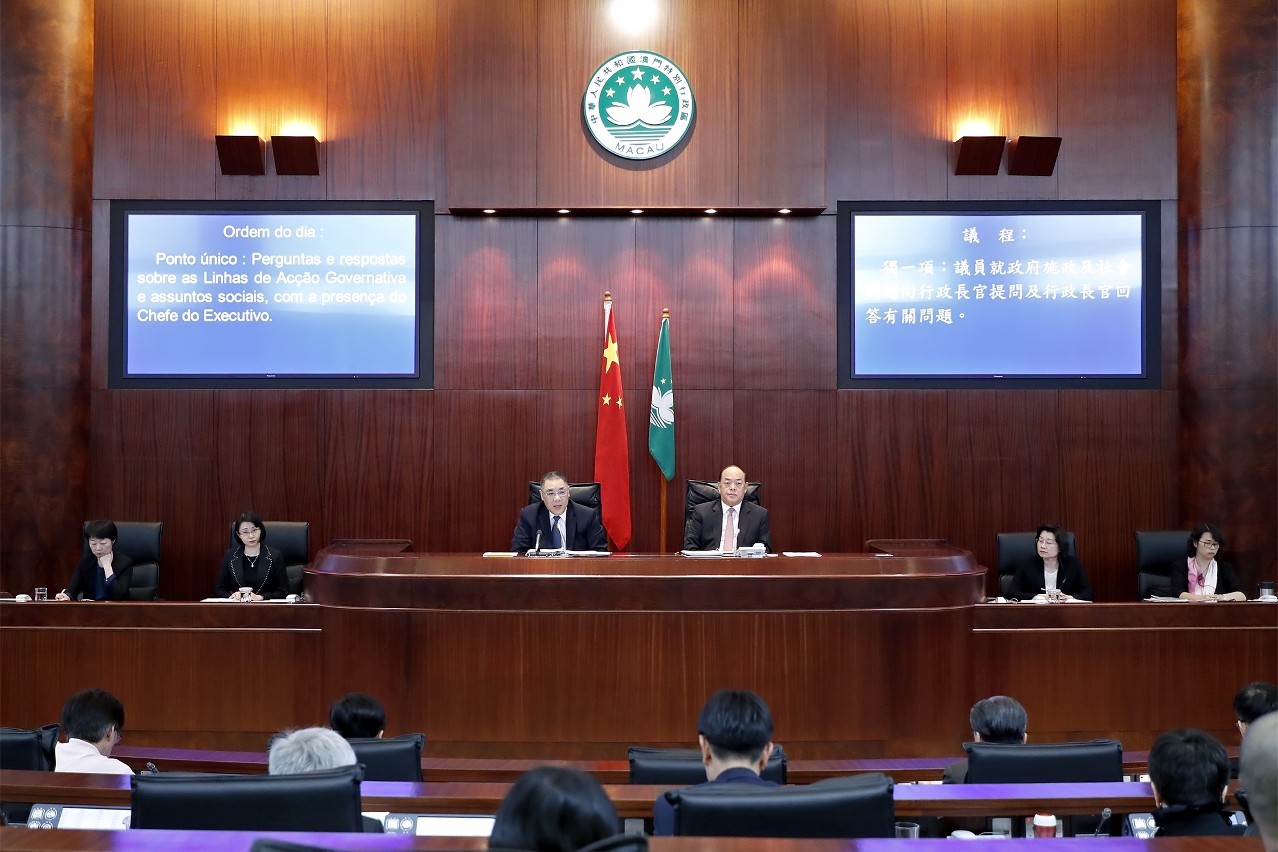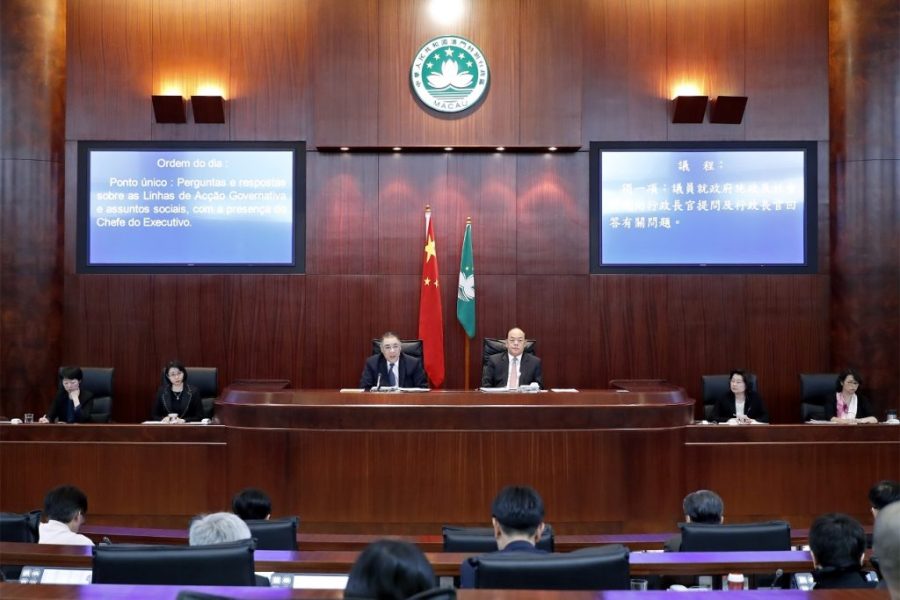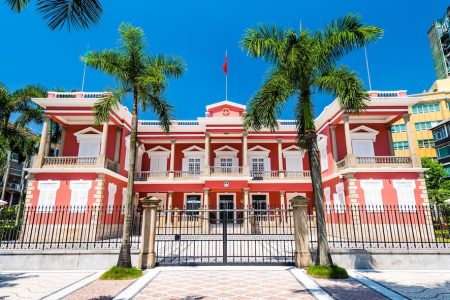The government will set up a development and investment fund in the first half of the year, Chief Executive Fernando Chui Sai On told lawmakers Thursday.
Chui made the announcement in a question-and-answer session in the hemicycle of the Legislative Assembly (AL).
Chui said the fund – which would be similar to other state-owned investment funds known as sovereign wealth funds – said the future fund would allow the government to increase the value of its financial reserves and its investments in the Greater Bay Area (GBA).
The GBA comprises the special administrative regions of Hong Kong and Macau and nine cities in Guangdong province.
Chui pointed out that the financial reserves of the Macau Special Administrative Region (MSAR) amounted to 569.5 billion patacas (more than half a trillion patacas) at the end of January, when Macau’s foreign exchange reserves stood at 163.2 billion patacas.
The chief executive, whose second and constitutionally final 5-year consecutive term ends at midnight on December 19, said Macau’s strong financial and foreign exchange reserves showed that the MSAR was capable of setting up its own development and investment fund.
Chui said the MSAR Development and Investment Fund would be managed by a public but independent business entity. He said the entity would be separate from the government’s public administration and work in line with market rules. However, Chui was quick to add that the fund would benefit from the favourable interest and guaranteed future value conditions provided by the Guangdong-Macau Cooperation Development Fund.
Meanwhile, Chui also said that Macau needed to improve its competitive capacity. He said the special administrative region could achieve this by cooperating with the GBA, which would also promote Macau’s economic diversification and offer local people a wider range of employment opportunities as well as ensure Macau’s sustainable development.
Chui underlined the importance of qualified human resources for Macau’s sustainable development. He pointed out that some 90 percent of Macau’s secondary school leavers continue their studies in tertiary education institutions whose graduates enjoy a high degree of employability.
However, Chui also pointed out that Macau is facing a lack of professionally trained technicians, due to the fact that fewer and fewer locals attend vocational schools.
The chief executive cited the government-appointed Talents Development Commission as calling for new policies to attract qualified human resources from outside Macau. Chui admitted that Macau is exporting more qualified human resources than importing them. He said that Macau was lagging behind other GBA cities in importing professionals.
Chui said the commission would propose new measures in the next few months to attract badly needed qualified human resources in the areas of professional services and training. He said the measures would be submitted for public consultation, adding he believed that the measures would contribute to the well-being of the local population.
Chui also said the government was considering the launch of new visa categories, such as special visas for academics, with the aim of promoting education and scientific research in Macau.
The chief executive also told the legislature that Macau and Guangdong had reached consensus on offering health insurance to Macau people living and working in the GBA. He said the health insurance scheme would be implemented within the context of the central government’s new rules for Macau people’s residency titles on the mainland. He said Macau and Guangdong still needed to sign an agreement on the insurance scheme.
Some 17,000 Macau people are said to be potential beneficiaries of the scheme.
Chui also said he assumed there was enough time for the future MSAR government (which will be sworn in on December 20) to prepare an international public tender and amend gaming-related legislation before the city’s three gaming concessions and three sub-concessions expire in June 2022. He said he believed there was no need to extend the concessions and sub-concessions.
Earlier this year, the government extended the concession of SJM and sub-concession of MGM China until June 2022, thereby bringing them on par with the two other concessions (Wynn and Galaxy) and two other sub-concessions (Melco and Sands). Both SJM and MGM’s contracts with the government were originally slated to expire next year.
Chui said the government was already working on proposed amendments to the existing gaming industry law and respective by-law. Any changes proposed to the law would have to be passed by the legislature. The by-law does not require a lawmakers’ green light.
Chui did not elaborate on the future gaming industry rules, such as whether the separation between concessions and sub-concessions would be maintained after June 2022.
However, he said that the new contracts with the city’s gaming operators should include specific requirements for the investments in non-gaming attractions and improved employment conditions for Macau people such as all local gaming employees’ coverage by the government’s non-mandatory providence fund.(Macaunews)






